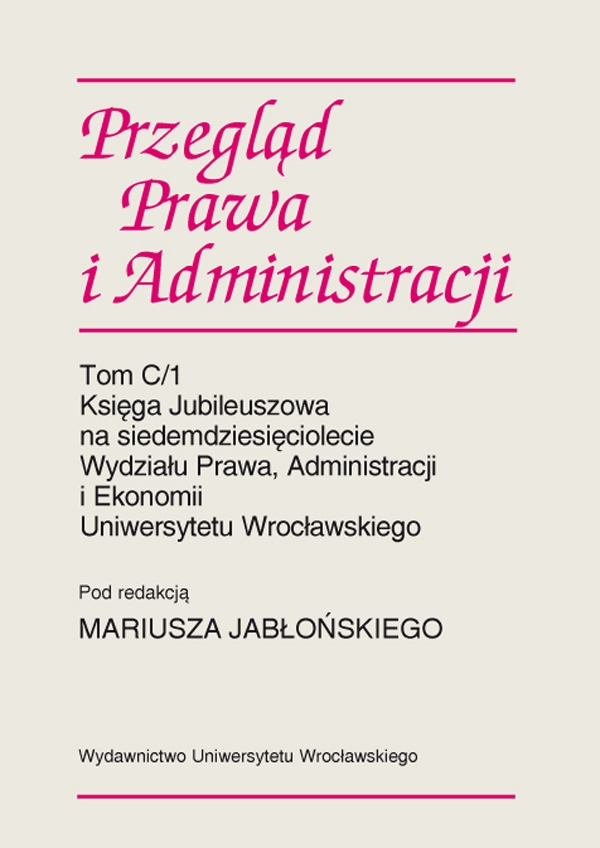

Artykuły archiwalne

THE NATURE OF ECONOMIC LIBERTY AND ITS ORIGINS
IN THE EU LEGAL SYSTEM
This paper is concerned on economic liberty and its significant role in the EU legal system — both as a leading guarantee of the integration process as well as of the proper application of subjective rights in relations between individuals and EU institutions and national authorities. What is worth analyzing is a kind of a paradox that such an important right was neither mentioned in the European Convention of Human Rights nor expressly regulated by the Rome Treaties. However, as proved, it seemed not to be a real obstacle for the European Court of Justice to base its judgments on this liberty considered as a fundamental right, which used to belong to the general unwritten principles of Community law. Actually the most famous judgments regarding the sole nature of all fundamental rights in this legal system, such as Nold or Hauer, applied this exact liberty — along with some other guaranties. One of the biggest challenges in this area turned to be its final name, since the Court applied different ones relating to the right to pursue occupation or conduct business, and consequently its scope. The legal situation described above changed with the entering into force of the Charter of Fundamental Rights, but economic liberty as a general natural right is still covered not by one but two different provisions responding to these above-mentioned aspects, i.e. Art. 15 and 16. What is even more important to emphasize is that this liberty in the EU system is actually based on two different sources, not limited only to former general principles. There is no doubt that the area where it has been much more advanced and developed without such a legal base, is the EU internal market law. Although case law regarding its freedoms usually did not mention such a term, it still has a strong influence upon them. Therefore one of the most interesting aspects covered by this paper is the relation between freedoms and fundamental rights as well as their personal and substantive scope and method of application.